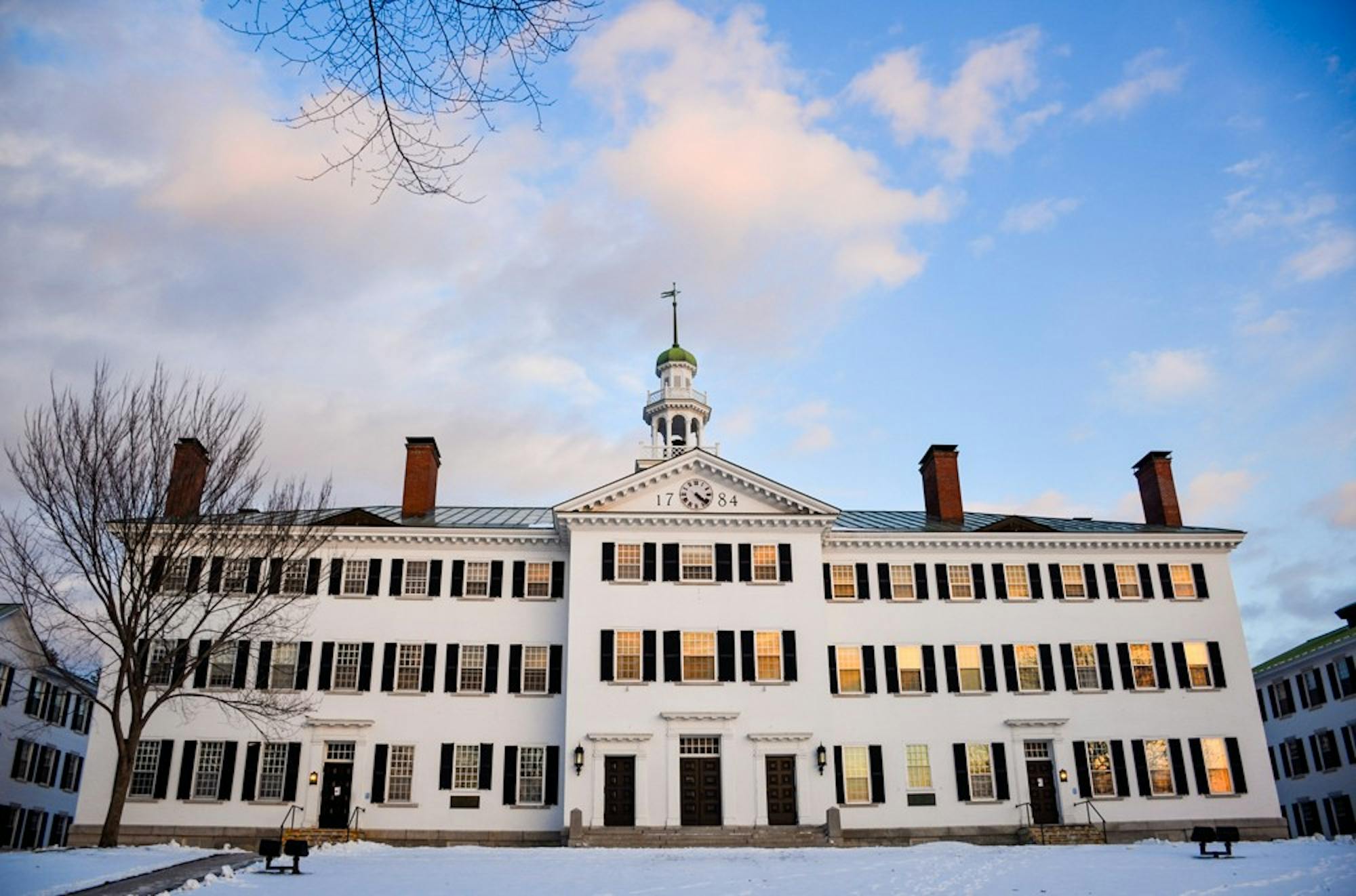Citing a recent surge in delta variant cases and the impending spread of the omicron variant, interim provost David Kotz and executive vice president Rick Mills announced additional COVID-19 prevention measures in an email to campus Friday afternoon. The changes — which include grab-and-go dining, restrictions on gatherings and a booster shot mandate — are intended to “maintain in-person classroom learning and laboratory research and to keep campus as open as possible while also supporting the physical and mental health of our community,” Mills and Kotz wrote.
Dartmouth will mandate that all students, faculty and staff receive booster shots by Jan. 31 and submit documentation to the College Health Service. The College will hold on-campus clinics in January, but Kotz and Mills encouraged eligible individuals to get their boosters before coming to campus if possible.
According to the Centers for Disease Control and Prevention, anyone over 18 is eligible for a booster shot — as well as 17- and 18-year-olds who originally received the Pfizer-BioNTech vaccine — and should receive either a Pfizer or Moderna booster. Shot locations are available at vaccines.gov.
Dartmouth students were required to submit proof of full vaccination by the start of the fall term. Faculty and staff were required to submit proof of full vaccination by Dec. 8. As of Dec. 17, 98.5% of undergraduate students, 98.6% of graduate students and 95.8% of faculty and staff are fully vaccinated, according to the College’s COVID-19 dashboard.
Indoor social gatherings will also be suspended through Jan. 18 for all schools. The College had previously announced the cancellation of all Dartmouth-sponsored, indoor holiday gatherings.
In an emailed statement, College spokesperson Diana Lawrence wrote that “academic and academic-related events” such as study groups and guest speakers will still be allowed, but “purely social events, like Greek parties, will not be permitted.”
Lawrence also wrote that the library and Alumni Gym are expected to remain open to students, and that the College will “provide clarity and additional details at the beginning of the term.” She noted that the athletics department has limited spectator access to sports events.
Kotz and Mills wrote in their Friday email to campus that the College will facilitate “additional” outdoor activities and that the ban on indoor social events will be reevaluated in mid-January.
“Limiting the spread of infection at social events can preserve our ability to continue in-person operation,” they wrote.
Dining will also be limited to grab-and-go for the first two weeks of January, similar to during arrival quarantine in previous terms and the campus outbreak in February 2021. However, Lawrence wrote that “we do not expect to require campus-wide quarantine” at the beginning of the upcoming term.
The tightening of restrictions follows the rapid worldwide spread of the omicron variant — which has been detected in 85 countries and 43 states, including New Hampshire, since its discovery in late November — and a surge in cases New Hampshire officials say is caused by the delta variant.
According to data from the New York Times, New Hampshire recorded a daily average of 1,229 cases over the last seven days, earning it the third highest volume of cases per 100,000 residents in the U.S. this week. Vermont — which has a statewide vaccination rate of 76%, compared to New Hampshire’s 66% — has seen a daily average of 393 cases. Both states have also seen record numbers of hospitalizations over the last month.
As of Dec. 10, Dartmouth-Hitchcock Medical Center has no longer allowed visitors and has limited caregivers’ access to patients due to the surge in COVID-19 patients. The Valley News reported that there were 74 patients hospitalized with COVID-19 across all of Dartmouth-Hitchcock’s campuses — which have just under 400 beds in total — as of Dec. 8, and that the system will likely reach 100 hospitalizations by the end of December. The vast majority of those hospitalized, hospital officials said, were unvaccinated.




